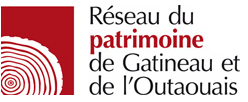
The Collective of Residents’ Associations of Gatineau is organizing a citizen forum on citizen participation in land use planning and urban planning. With the accelerated development in Gatineau, issues of urban planning and development of our city and our neighborhoods are often at the heart of the concerns of many citizens and their associations. It is also these questions that led to the creation of the Collective during the 2020 reconciliation work. This choice to deepen the issues of citizen participation in land use planning is therefore appropriate. The objective of the Collective is to recognize the importance of residents’ associations as a legitimate, credible and autonomous citizen voice in a local democracy, particularly in terms of land use planning. A civic voice that must be encouraged and valued.
MANDATORY REGISTRATION: https://forms.gle/RxhWHQds6QHxrUKT9
When: Saturday, April 1, 2023, 9:00 a.m. to 3:30 p.m.
Location: Maison des citoyen, 25 rue Laurier (parking available – entrance on Hôtel-de-Ville)
Price: Free (lunch included)
Summary of the program
The forum will take place in two stages. The morning will be devoted to presentations with question periods on the reference framework currently in place in Gatineau, on the issues and trends in public participation and on the various models of structures governing participation currently existing in Montreal, Quebec, Laval and Longueuil. After the lunch provided on site, three workshops will take place in parallel, followed by a plenary session.
Workshop 1: Residents’ associations as a vehicle for citizen participation
Based on studies on the subject and testimonies of experiences lived by certain Gatineau associations, participants will be invited to discuss the importance of associations as a complement to elective democracy as well as the issues they face. as well as best practices. The workshop will also identify practices that help improve communications between associations and elected officials and between associations and the municipal administration.
Workshop 2: Challenges and issues of inclusive citizen participation
This workshop is intended to be a place for sharing experiences to identify the obstacles to the participation of people in the life of their neighborhood and in the public consultations organized by their city or other public bodies. It is important for us to understand how to promote greater inclusiveness in terms of sociocultural and economic profile and individual capacities, as well as better representativeness of the needs of different citizen groups. The discussions will make it possible to identify courses of action for the City, but also for residents’ associations.
Workshop 3: Advantages and disadvantages of the models presented in the morning
From the presentations of the panellists in the morning, the participants will be called upon to identify the advantages and disadvantages of the models but also to define what is common to them and which should constitute guarantees of success regardless of the structure put in place. A more detailed program will be sent to registrants.

